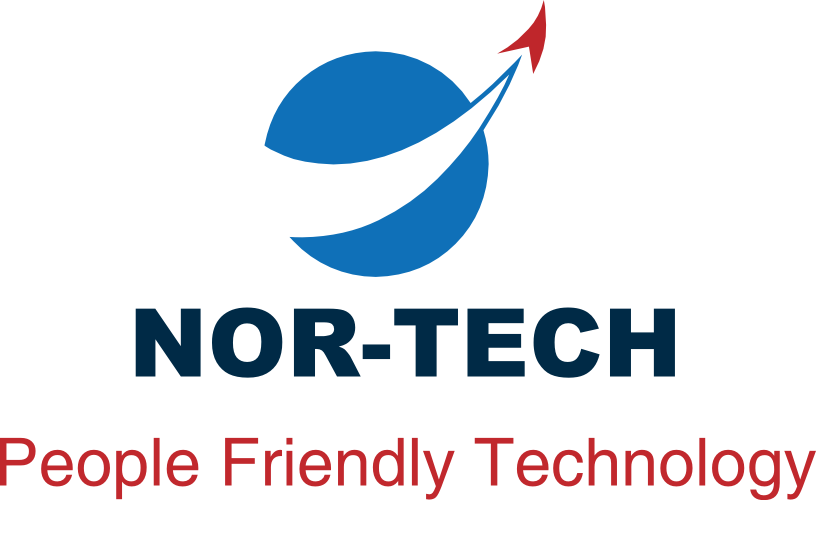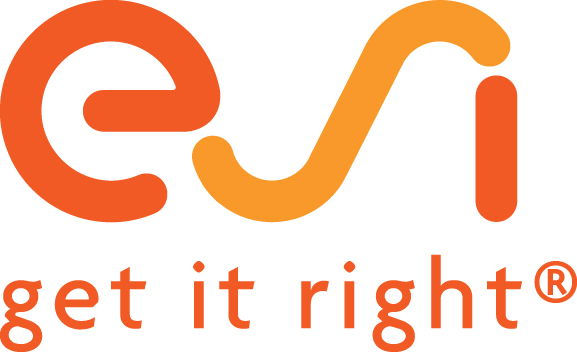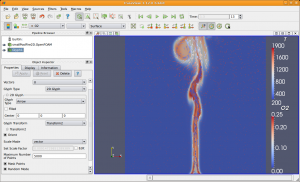


Nor-Tech’s Entry Level HPC Cluster with OpenFOAM®*
 Nor-Tech brings HPC clusters within the reach of most scientific and research organizations. In addition to being affordable, our entry level clusters are made with the highest quality components and are available with open source platforms. And they are highly scalable—we can add as many nodes as you need when you need them. This makes a lot more sense from a performance, financial and space perspective than continually adding more workstations. For example, instead of buying 4 workstations, you can buy one cluster and get the results you need 3x faster.
Nor-Tech brings HPC clusters within the reach of most scientific and research organizations. In addition to being affordable, our entry level clusters are made with the highest quality components and are available with open source platforms. And they are highly scalable—we can add as many nodes as you need when you need them. This makes a lot more sense from a performance, financial and space perspective than continually adding more workstations. For example, instead of buying 4 workstations, you can buy one cluster and get the results you need 3x faster.
Benefits include:
- Quick return on investment
- Better ROI because of intelligent resource and job scheduling
- No large recurring licensing fees
- Integrated with open source platforms
- Easy Bare Metal Recovery
- Quiet, runs on standard power, and has wheels–so can be used in an office, classroom, laboratory
Check out the specs: ![]() Personal Cluster Model 1600 with OF & PV – 25Hrs.
Personal Cluster Model 1600 with OF & PV – 25Hrs.
The Support You Need When You Need It.
Nor-Tech is renowned throughout the scientific and academic communities for easy to deploy turnkey clusters and expert, no wait time support. This means that if you have a question, you’ll have the answer you need right when you need it. These entry-level clusters and all of our technology are made by us in Minnesota and supported by us around the world.
Support for CAE platforms, such as OpenFOAM and ParaView, is provided by Nor-Tech’s specialist partners through a purchased support package that can be bundled with the cluster purchase and maintained until you are comfortable using the platform(s). For PBS Pro Scheduler, commercial support is also available from Altair.
Open Source Platforms
In addition to expertly designed hardware, we keep the cost of our entry levels clusters down by eliminating recurring licensing fees where possible. The open source platforms we currently integrate include:
- PBS Pro Scheduler
- OpenFOAM
- ParaView
PBS Pro™ Scheduler
Voted #1 HPC Software by HPCWire readers and time-tested for 20 years, PBS Pro Scheduler optimizes job scheduling and workload management for high performance clusters. PBS Pro is fast, scalable, secure, and resilient, and supports all infrastructure, middleware, and applications. Features include:
- Scalability:supports millions of cores with fast job dispatch and minimal latency; tested beyond 50,000 nodes
- Policy-Driven Scheduling:meets unique site goals and SLAs by balancing job turnaround time and utilization with optimal job placement
- Resiliency:includes automatic fail-over architecture with no single point of failure – jobs are never lost, and jobs continue to run despite failures
- Flexible Plugin Framework:simplifies administration with enhanced visibility and extensibility; users can customize implementations to meet complex requirements
- Health Checks:monitors and automatically mitigates faults with a comprehensive health check framework
Altair just released this open source version of PBS Pro. A commercial version is also available. Since it swaps seamlessly with the open source version, it is an excellent option for entry level clusters as they expand along with the organization.
OpenFOAM®
 OpenFOAM is open source time-tested CFD software developed primarily by ESI’s OpenCFD Ltd. It was created in the 1980s and first released in 2004. It has a large user base across most areas of engineering and science–both commercial and academic organizations. OpenFOAM includes a full array of tools that solve anything from complex fluid flows involving chemical reactions, turbulence, and heat transfer to acoustics, solid mechanics, and electromagnetics. OpenFOAM is independently tested by ESI-OpenCFD and supported by ESI’s worldwide infrastructure. Benefits include:
OpenFOAM is open source time-tested CFD software developed primarily by ESI’s OpenCFD Ltd. It was created in the 1980s and first released in 2004. It has a large user base across most areas of engineering and science–both commercial and academic organizations. OpenFOAM includes a full array of tools that solve anything from complex fluid flows involving chemical reactions, turbulence, and heat transfer to acoustics, solid mechanics, and electromagnetics. OpenFOAM is independently tested by ESI-OpenCFD and supported by ESI’s worldwide infrastructure. Benefits include:
- No license costs
- Friendly syntax for partial differential equations
- Unstructured polyhedral grid capabilities
- Automatic parallelization of applications written using OpenFOAM high-level syntax
- Wide range of applications and models ready to use
- Commercial support and training provided by organizations that include the developers
ParaView
 ParaView is an open-source, multi-platform data analysis and visualization application that was first released in 2002. ParaView users can quickly build visualizations to analyze their data using qualitative and quantitative techniques. The data exploration can be done interactively in 3D or programmatically using ParaView’s batch processing capabilities. ParaView was developed to analyze extremely large datasets using distributed memory computing resources. It can be run on supercomputers to analyze datasets of petascale as well as on laptops for smaller data.
ParaView is an open-source, multi-platform data analysis and visualization application that was first released in 2002. ParaView users can quickly build visualizations to analyze their data using qualitative and quantitative techniques. The data exploration can be done interactively in 3D or programmatically using ParaView’s batch processing capabilities. ParaView was developed to analyze extremely large datasets using distributed memory computing resources. It can be run on supercomputers to analyze datasets of petascale as well as on laptops for smaller data.
